I'm not confident there isn't a nicer way, but maybe something like this is a good starting point:
SELECT SUBSTRING_INDEX(SUBSTRING_INDEX(tablea.id, ',', numbers.row), ',', -1)
FROM
tablea INNER JOIN
-- This numbers subquery is taken from @Unreason's answer in https://stackoverflow.com/questions/304461/generate-an-integer-sequence-in-mysql
(
SELECT @row := @row + 1 AS row FROM
(select 0 union all select 1 union all select 2 union all select 3 union all select 4 union all select 5 union all select 6 union all select 7 union all select 8 union all select 9) t,
(select 0 union all select 1 union all select 2 union all select 3 union all select 4 union all select 5 union all select 6 union all select 7 union all select 8 union all select 9) t2,
(SELECT @row:=0) n) numbers
on numbers.row <= LENGTH(tablea.id)-LENGTH(REPLACE(tablea.id, ',', ''))+1
Given tablea.id='27,19,8', SUBSTRING_INDEX(SUBSTRING_INDEX(tablea.id, ',', 1), ',', -1) will return the first element (27) and SUBSTRING_INDEX(SUBSTRING_INDEX(tablea.id, ',', 2), ',', -1) will return the second element (19), and so forth.
Therefore I join that with a list of numbers (in this case my list goes up to 100, so I am assuming a single tablea.id field never has more than 100 comma-separated values, although the details could be changed). The join condition uses LENGTH(tablea.id)-LENGTH(REPLACE(tablea.id, ',', ''))+1 which is a count of how many comma-separated values are in the field.
Here's a db fiddle of it working to play around with.
